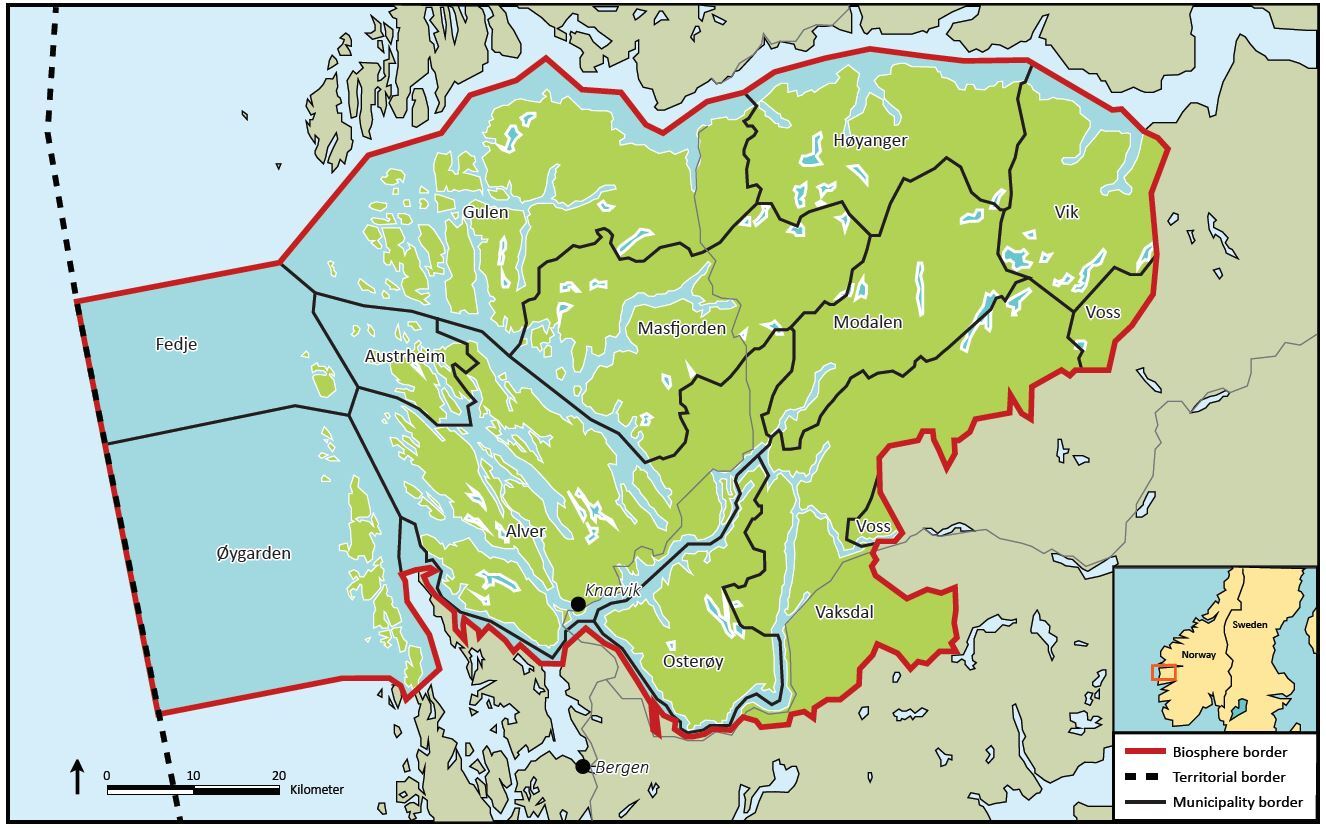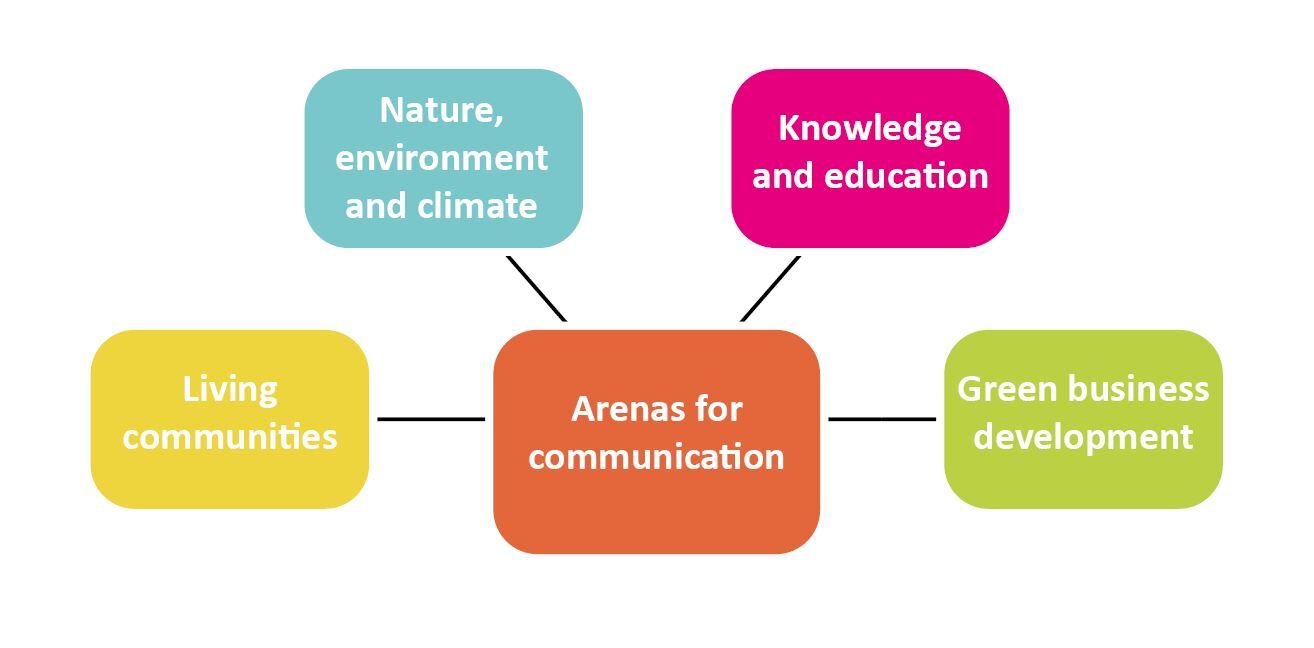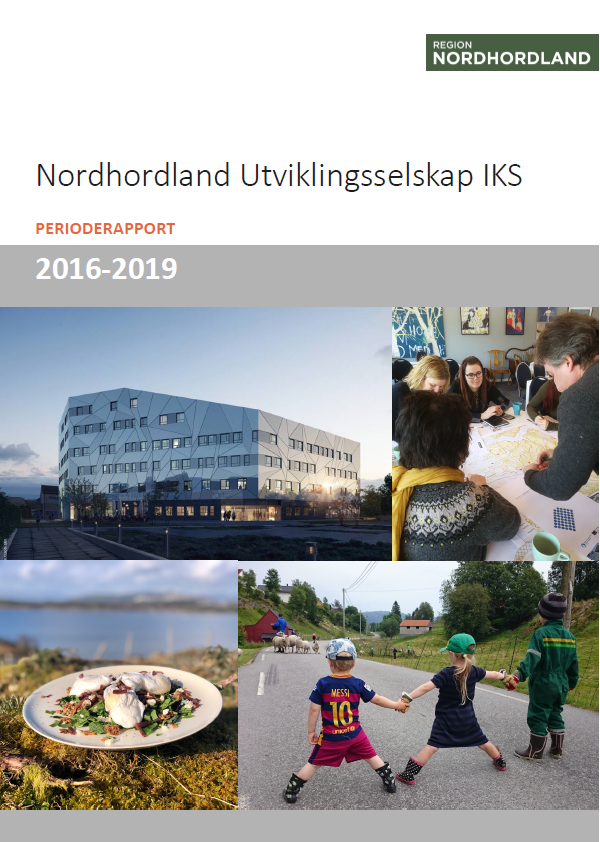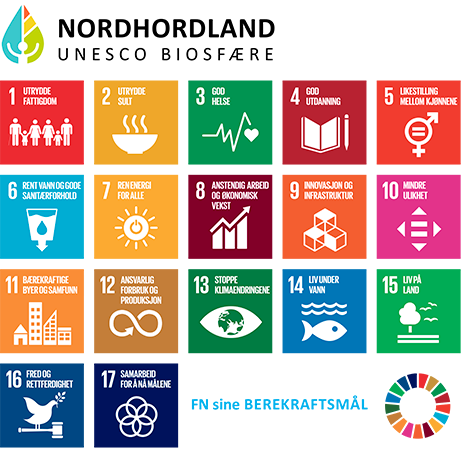Nordhordland UNESCO Biosphere
Information in English
INTRODUCTION
From the outermost skerry,
where the ocean swell washes like the planet’s own heartbeats onto the rocks,
across heaths and straits, infields and outfields, knolls and hillocks
all the way to where the landscape climbs steeply up towards the mountains,
and farm stands behind farm all the way to the sky,
Nordhordland is Norway in miniature.
Even if the whole region from Fedje to Stølsheimen was torn from the coast and set adrift,
it would nevertheless contain most of what this country has to offer.
Gunnar Staalesen, author
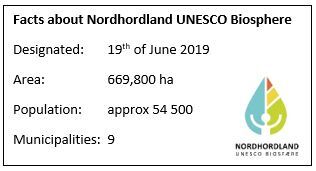
NORDHORDLAND UNESCO BIOSPHERE
A biosphere area shall be a model area for sustainable development. Nordhordland decided early in the application process that we wanted to build our biosphere upon the most important resources in Norway – also in Nordhordland. This to make sure that our biosphere area is representative for our country and interesting in an international context.
The main resources of western Norway and the biosphere area:
Nature. The area has an international recognized landscape, the natural environment is full of contrasts: the coast protected by a wide archipelago, a multitude of small and large fjords, and steep valleys partly covered with woodland rising gradually up into the high mountains. There is a great climatic and ecologic gradient from the ocean to the mountains (1300 m above sea-level).
Water. Western Norway and Nordhordland has an oceanic climate and receive the major part of rain within the country. Norway is the 6th largest hydro power producer globally and the largest in Europe.
Fish. Both fish in the waters, fjords and ocean, but also fish in the fishfarms. Western Norway has large resources of pelagic fish. Norway is the largest aquaculture producer in Europe and this trade is the second largest export income of the country.
Petroleum. Norway is a large European producer of oil and gas. In the biosphere area we have a large oil refinery, a gas processing plant and plants for storing oil. We also have a test-centre for carbon capturing and storage.

Figure: Resource profile of Nordhordland UNESCO Biosphere
Map Nordhordland UNESCO Biosphere
WHY A BIOSPHERE AREA IN NORDHORDLAND?
The most important reasons:
- Community development. This will give us a holistic approach and direction for the development of the whole region – based on SDG17: Preserve biodiversity, develop our resources, take care of and promote our cultural values and help secure further economic development.
- Research. Nordhordland biosphere should be a force for knowledge-driven, sustainable development. Therefor research is very important for us. We want to establish dialog and strong collaboration with different research institutions.
- Business and industry development. Nordhordland Biosphere wants to contribute to a further development of more sustainable industry and business in the region.
- International network. To be a part of an international network, to collaborate with, and learn from other BR’s around the world, and also to contribute with our knowledge and experiences, is very interesting and important for us.
- Better quality of life – pride and happiness. We want to use this designation to raise awareness of all the wonderful resources in the region and invite to dialogue to discuss the sustainable future for Nordhordland.
THE STRATEGIC MANAGEMENT PLAN
We have had a participatory process towards a strategic management plan for the biosphere. This is now on hearing, to get the lase feedback before we adopt it hopefully before summer 2020. The management plan outlines five focus areas:
- Living communities
- Nature, environment and climate
- Knowledge and education
- Green business development
- Arenas for communication
Feedback, Questions or want to get in touch?
Coordinator of Nordhordland UNESCO Biosphere:
Kari Evensen Natland, tel: +47 48070972 E-mail: kari@nordhordland.net
UNESCO Chair at University of Bergen:
Inger Måren, tel: +47 41285126 E-mail: inger.maaren@uib.no













